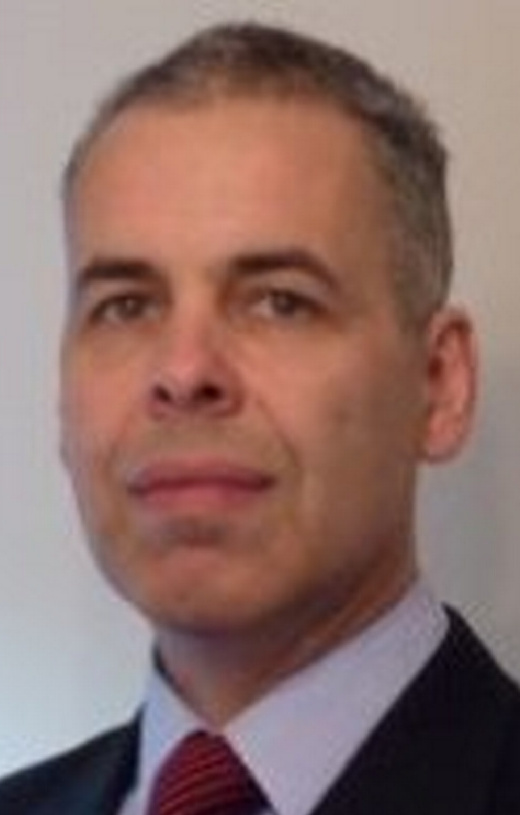A small British technology firm that helps facilitate the “internet of things” has opened an office in Portland to better connect with customers in the U.S.
IN2FAB is an unusual semiconductor company, because it neither designs nor produces microchips. Instead, it helps clients identify semiconductor fabrication plants, or “fabs,” with the right equipment and processes to produce the client’s particular microchips.
But that’s only half the challenge, said Tim Regan, IN2FAB’s president and chief technology officer. Even with a compatible fab, the client’s chip design often needs to be modified, and IN2FAB’s proprietary software can help them do that.
“It’s not so much finding a match for what exists,” he said. “It’s taking what exists and adapting it to be able to be made somewhere else.”
A problem often arises for device makers when an existing fab shuts down, Regan said. Production of the microchips that serve as the brain centers for devices such as smart watches and web-enabled home security systems must go to a new fab.
But not all fabs are created equal, Regan said. It can be difficult to locate a facility capable of fabricating semiconductors of a particular design.
To make matters worse, in some cases the digital files used as blueprints to manufacture the microchips have been lost along with the shuttered fab, he said. It’s not an uncommon problem. According to a study by market research firm IC Insights, 72 fabs worldwide shut down between 2009 and 2013.
The alternative to migrating production of the existing chips to another fab is to create a new design from scratch, which is expensive and time-consuming, Regan said.
That’s where IN2FAB comes in. The company, which consists primarily of electronics and software engineers, can help customers recover their design files, fill in any missing gaps and match the microchip designs to a fab capable of manufacturing them.
“We work with all of the world’s leading foundries,” another word for fabs, Regan said.
There are hundreds of fabs located all over the world, including Texas Instruments and Fairchild Semiconductor fabs in South Portland. The U.S. has more fabs than any other country, but there are dozens in China, Taiwan, Singapore, Japan and South Korea.
Regan said the presence of fabs in southern Maine is “good to have” but was not a big factor in his decision to open an office in Portland.
GROWING PRESENCE
There has been an explosion of internet-connected devices in recent years, including cameras, cars, drones, vending machines, thermostats, door locks, parking meters, washing machines and even dog collars. All of those devices, known collectively as the internet of things, contain microchips.
“They are absolutely everywhere now,” Regan said.
However, few of the makers of those products actually produce their own chips. They either have the chips designed and manufactured by third parties, or they purchase standardized microchips off the shelf. In all cases, software must be written to instruct the chip to function as needed.
Relatively simple devices, particularly larger ones that are plugged into a wall socket, frequently use standardized chips that can be purchased in bulk at low prices. However, small and complex devices that run off batteries require more expensive chips that cram a lot more technology into a small package that draws relatively little power. Those can cost a lot of money to make.
“To make chips in advanced processes is frighteningly expensive,” Regan said.
He said IN2FAB’s expansion into Maine will help the company reach more potential customers in the U.S., where many of the world’s most advanced microchips are designed.
Prior to founding IN2FAB in 2005, Regan worked in microchip design. He came up with the idea to add chip migration as an add-on service, but ultimately decided to focus on it full time.
For now, the company remains a small operation of about 10 employees in Europe and the U.S. However, Regan said he hopes to add technical and sales staff as IN2FAB grows. His plan is to hire local talent rather than importing skilled labor from the U.K.
IN2FAB’s Portland office is inside the Time & Temperature Building at 477 Congress St. Regan said he chose Portland for the company’s U.S. expansion for both professional and personal reasons. He knew he wanted the office to be in New England, the U.S. tech industry’s Northeast hub, because it is also relatively close to his home country of Great Britain.
Regan said his wife is American, and that she wanted to move back to the U.S. after living for many years overseas. They chose Portland because of Maine’s welcoming attitude toward his business, the close proximity to big tech centers such as Boston, and southern Maine’s neighborhood feel.
“For pure quality of life, you’re going to struggle to beat this,” Regan said.
J. Craig Anderson can be contacted at 791-6390 or at:
Twitter: jcraiganderson
Send questions/comments to the editors.




Comments are no longer available on this story